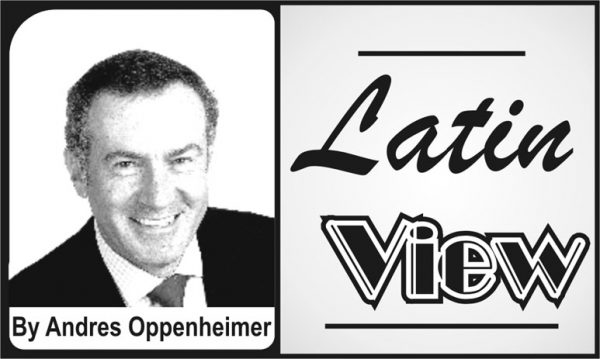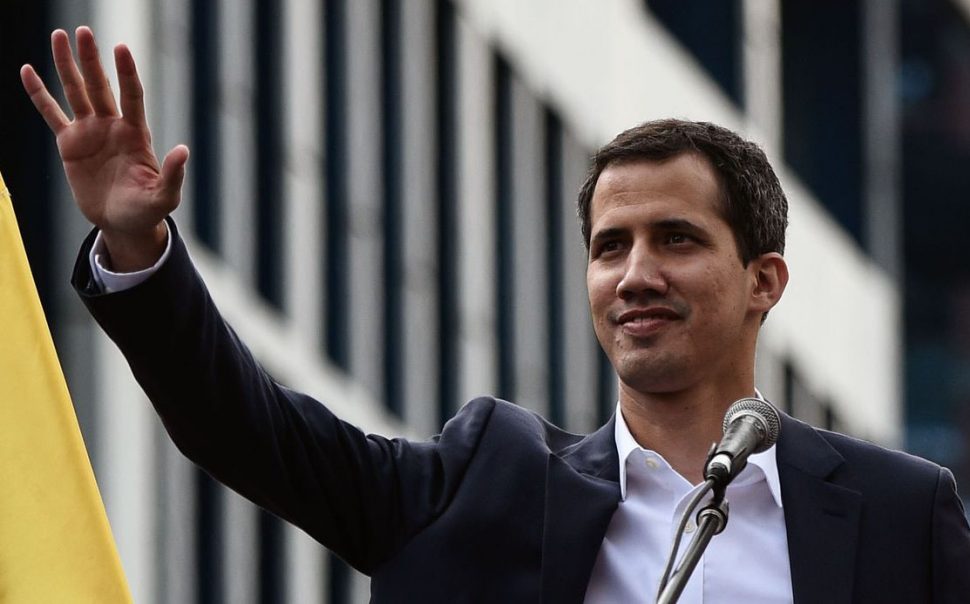
When I interviewed him last week, what surprised me the most about Venezuela’s National Assembly President Juan Guaidó — who Wednesday was recognized by the United States and most Western democracies as Venezuela’s legitimate leader — were his unassuming personality and his limited political ambitions.
Those may be Guaidó’s biggest assets, because they have helped unite Venezuela’s opposition — until recently fragmented — behind him.
Despite Venezuela’s economic collapse and dictator Nicolás Maduro’s plummeting popularity, opposition leaders had not been able to present a united front in a long time. Now, they are all backing Guaidó.
They see the 35-year-old engineer as a sincere, well-intentioned caretaker president who only wants to preside over a quick transition to democracy.
Guaidó told me in the Jan. 21 interview that his two main priorities once sworn in as Venezuela’s legitimate leader would be getting urgent humanitarian help from friendly countries to alleviate Venezuela’s food and medicine shortages and calling early elections.
“An election must be called as soon as possible,” he said, noting that he would have to create the right conditions first. “Our constitution says it should be within 30 days. We must make sure that all votes are counted, and everybody has the right to vote and to be elected.”
Unlike Maduro, or his predecessor Hugo Chávez, Guaidó doesn’t talk much about himself.
During the interview, he constantly paid tribute to other opposition leaders who are in prison, exiled or under house arrest, including his centrist Popular Will party leader and political mentor Leopoldo Lopez. “This is not a personal cause,” he said.
Asked whether he fears being arrested, Guaidó said that living in fear of government repression is part of life for politicians who are against Maduro’s dictatorship, and that he doesn’t spend much time worrying about it. On whether he would seek to lead his parallel government from a foreign embassy in Caracas, he said, “No, not at all.”
Referring to calls by some neutral countries for an internationally mediated “national dialogue,” Guaido said that Maduro has used several such dialogues in the past to win time and gain political oxygen. He said Venezuela needs a dialogue “for a political solution to the crisis, and not just for the sake of a dialogue.”
Maduro is now desperately trying to sell the idea that Guaidó is a coup plotter. But it is Maduro who first staged a coup in 2016 and became a full-blown dictator when he stripped the democratically elected National Assembly of most of its powers after the opposition had won free congressional elections by a landslide in late 2015.
Later, Maduro held a visibly fraudulent election on May 20, 2018, and illegitimately proclaimed himself president on Jan. 10.
Guaidó, on the contrary, acted in accordance to Article 233 of the Venezuelan Constitution. It says that when the country’s presidency is “usurped,” the National Assembly can elect its president as the nation’s caretaker in charge of holding new elections. If there’s an illegitimate president in Venezuela, it’s Maduro.
Granted, at the time of this writing, Venezuela’s corruption-riddled military high command still sides with Maduro, which will make it almost impossible for Guaidó to open a corridor for international food aid to the country — which Maduro opposes, claiming there is no need for it — or implement other domestic policies.
But Guaidó nevertheless has formidable economic powers, thanks to his recognition as Venezuela’s acting president by the United States and most major Latin American and European democracies, with the exception of Mexico.
Guaidó already indicated Friday that he will ask the United States to deposit all payments from Venezuela’s oil imports in an escrow account, instead of sending them to the Maduro government. That would kill the Maduro regime’s main source of legal income.
Maduro will now try to turn this political crisis into a Venezuela-vs.-United States confrontation, playing the victim to get international support. But it’s really a confrontation between Maduro and the Venezuelan people.
Guaidó, in part thanks to his unpretentious personality, has managed to unite the opposition and put Maduro on the defensive.






